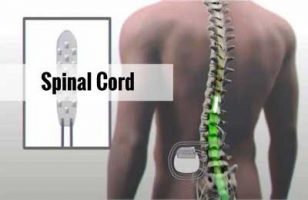- Home
- Editorial
- News
- Practice Guidelines
- Anesthesiology Guidelines
- Cancer Guidelines
- Cardiac Sciences Guidelines
- Critical Care Guidelines
- Dentistry Guidelines
- Dermatology Guidelines
- Diabetes and Endo Guidelines
- Diagnostics Guidelines
- ENT Guidelines
- Featured Practice Guidelines
- Gastroenterology Guidelines
- Geriatrics Guidelines
- Medicine Guidelines
- Nephrology Guidelines
- Neurosciences Guidelines
- Obs and Gynae Guidelines
- Ophthalmology Guidelines
- Orthopaedics Guidelines
- Paediatrics Guidelines
- Psychiatry Guidelines
- Pulmonology Guidelines
- Radiology Guidelines
- Surgery Guidelines
- Urology Guidelines
Chronic Pain - Alternative Treatment options to opioids

According to an estimate, 2 million people in the U.S. are addicted to prescription opioids, used for chronic or severe pain.Opioid drugs treat pain by binding to opioid receptors in the brain and other parts of the body, including the gastrointestinal tract and spinal cord. Long-term use of opioids for chronic, generalized visceral pain change the way the opioid receptors work, leading to addiction. Opioids can also cause respiratory depression which can be fatal if not treated quickly. A review article published in the American Journal of Physiology-Gastrointestinal and Liver Physiology has outlined newer, potentially safer therapies for treating chronic abdominal pain with lower risks of addiction and side effects.
The main mechanism that opioids use to reduce pain is through stimulation of the Mu-receptors. New approaches for treating abdominal pain include drugs that pinpoint different types of pain receptors, not only opioid receptors. In addition, newer generations of opioid medications may be able to relieve pain without the risk of addiction or respiratory depression. Potential new treatments include:
- Oliceridine, a drug that binds with a specific component of the Mu-opioid receptor without activating the part of the receptor that causes severe constipation or breathing to slow down.
- New formulations of opioids that are chemically modified so that the painkiller is only activated in inflamed areas. This approach has the potential to relieve pain in patients with intestinal inflammation, such as Crohn’s disease.
- Nociceptin/orphanin FQ opioid peptide (NOP) receptors, which are involved in pain relief. Some people with IBS have reduced NOP in their colon and this may result in greater pain sensation. There are new medications in development that can replace the deficient NOP and inhibit pain sensation.
- Buprenorphine, a partial opiate agonist. This type of drug is an opioid that does not produce the full effect of respiratory depression that other opioids do. New formulations are being developed to act on different types of receptors to reduce the potential to become addicted.
- Cannabinoid agents, medications that target the endocannabinoid system, which controls visceral pain, nausea, and vomiting.
IBS, pancreatitis and visceral pain may not respond to non-opioid painkillers or medications called neuromodulators, such as antidepressants. More and more, doctors have been prescribing opioid drugs for these challenging gastrointestinal conditions. “From 1997 to 2008, opioid prescriptions for chronic abdominal pain more than doubled in U.S. outpatient clinics,” wrote the review’s author, Michael Camilleri, MD, of the Mayo Clinic.
“These are all novel approaches for the treatment of visceral pain with peripherally-restricted or targeted mechanisms, and they … well for the future hope of developing peripheral visceral analgesics for IBS and chronic abdominal pain,” Camilleri wrote.
Read the full article click on the following link: https://doi.org/10.1152/ajpgi.00181.2017

Disclaimer: This site is primarily intended for healthcare professionals. Any content/information on this website does not replace the advice of medical and/or health professionals and should not be construed as medical/diagnostic advice/endorsement or prescription. Use of this site is subject to our terms of use, privacy policy, advertisement policy. © 2020 Minerva Medical Treatment Pvt Ltd